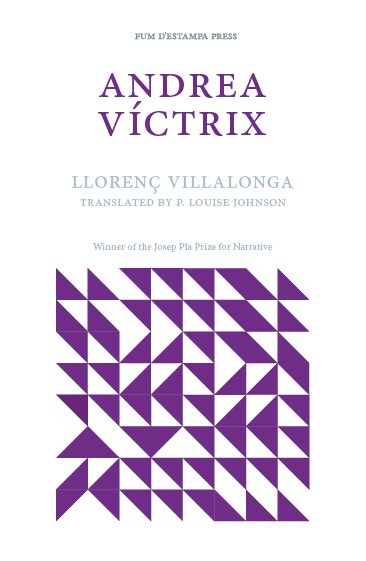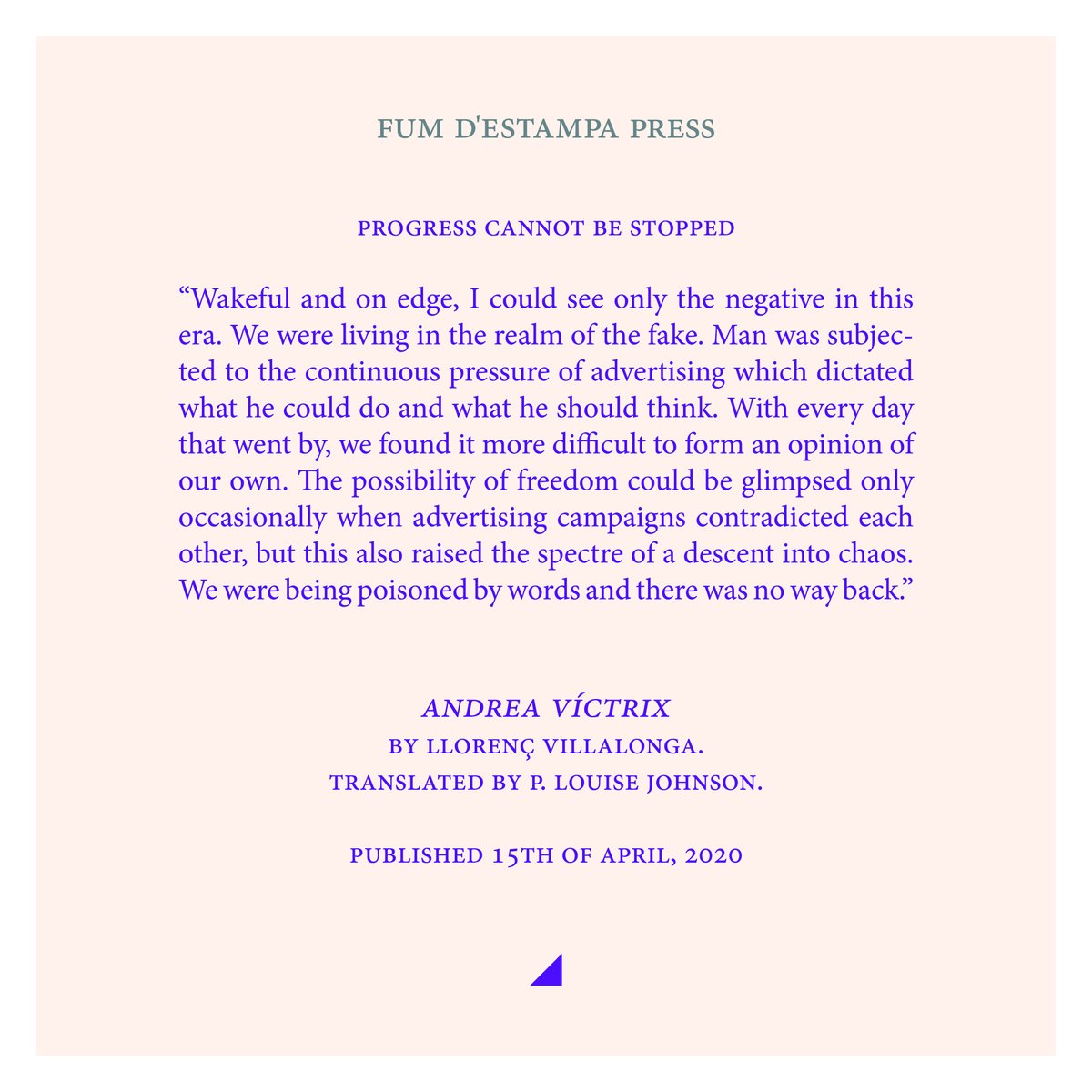
"A classic of contemporary Catalan literature, and a haunting and satirical portrait of a vanishing age, Llorenç Villalonga's The Dolls' Room concerns the decline of Don Toni and Dona Maria Antònia Bearn: aristocrats, cousins, husband and wife, and members of the decadent, age-old ruling class of a town that bears their name. Their story is told by the naïve family priest, Don Joan, who was taken under Don Toni's wing as a schoolboy. Describing the shabby grandeur of his benefactors’ lives in their ancient, rundown family mansion, their grand but ruinous excursions to Paris and Rome, and the mysterious events that lead to their deaths, the humbly devote Joan is continually challenged, and perhaps titillated, by Don Toni’s impious personality, his defiance of church authority, and his scandalous affairs. Partly condemning and partly admiring his devilish mentor, the pure-minded Don Joan’s lurid "biography" of the Bearns is a testament to the eternal attractiveness of the libertine, and the lengths to which we go in justifying our own worst impulses."
"It is a puzzle that this masterpiece has been so long in reaching the English-speaking world." - Publishers Weekly
"Villalonga is surely one of the best-loved writers in the Catalan language." - World Literature Today
Excerpt:
"Since you never came to Bearn, I must explain that it is a mountain estate located near a small village of about four hundred souls also called Bearn. Whether the estate took the name of the village or the village that of the estate remains unknown. Year after year, on the day of Sant Miquel, the patron saint of Bearn, the preacher mentions that these lands have belonged to the Senyors since the Conquest. It may be true, although there are no documents to prove this fact. 'Our lineage', Don Toni said, 'is so old that it can't be dated. It's lost in the darkness of time.' However, the oral tradition that made them respectable and irreproachable has had no official recognition. There is a good reason: the documents are missing. All the Senyors except for Don Toni, who was a francophile, were always quite indifferent as far as erudition was concerned. Even within the past century and a half, one of his great-great-grandfathers, also called Don Toni, was such a primitive soul that he was the object of many tales of mischief, although they probably exaggerate what he actually did. The old people remember the following rhyme:
Our Lord Jesus is in Heaven
and in Moorish lands, the heathen.
The Devil lives deep down in Hell
and in Bearn Don Toni dwells.
The Senyor found it all very amusing. 'At least,' he said, 'he didn't waste any time.' His other ancestors were more sensible. They lived in the country, and either ignored or looked down upon the refinements of city life. The City, in turn, ignored them.
From the village to the estate is about an hour's walk, but due to the mountainous terrain one cannot see the estate until one is practically on top of it. Bearn is thus, figuratively speaking, a lost cause. The land is poor, with only pine and oak growing between jagged rocks. It will soon be thirty-eight years since I came into this world, the son of a labourer and a farm girl. I have no recollection of my parents. I have heard that my mother was very beautiful and had jet-black eyes. When I was seven, I was sent to work as a swineherd, but the Senyor decided almost immediately that I was to be sent to school in the City. I can remember it as if it were this very moment. It was a summer afternoon and I had taken the herd over to S'Ull de Sa Font when the Senyors went by. They would spend long periods in the City, and when they returned, my respect, my fear or my embarrassment made me run off and hide every time I saw them. I barely dared to look at them anywhere but in the village church, on the day of Sant Miquel, when they sat in two red velvet-covered chairs next to the altar.
Dona Maria Antònia was very beautiful, and Don Toni, thin, graceful, and rather slight, resembled her despite his ugliness. They were first cousins. Although they almost always smiled, they were imposing because they appeared to be made of a different substance from that of the peasants, something newer and more luminous; not even now could I explain it. The way they dressed undoubtedly had something to do with it, but I do believe it was a less material, almost magical quality that surrounded the feudal and pastoral name of Bearn, revered every year from the pulpit on the holiday. Usually around Sant Miquel it rains in the mountains, and the history of the old family is as closely associated with the beginning of the cool weather and the joyful green of the first pastures as it is with the deeds of the conquerors in the battlefield.
'Look at that boy, Tonet,' said Dona Maria Antònia. 'Have you noticed his eyes?'
The Senyor stared at me and did not reply. Dona Maria Antònia was lost in thought.
'He reminds me of someone . . . I'm not sure who,' she said.
He remained silent. The following day I was sent to the Theatine school. I returned for the Easter vacation. My benefactors were not at the estate. Madò Francina told me that 'the Senyor was off travelling' and that Dona Maria Antònia was at the townhouse of Bearn, a stone house by the church. I thought I sensed some mystery in her words. Indeed there was: everybody was talking about it, whispering to each other, and no matter how much I listened, I could not understand a thing. Besides, whatever I could have understood would only have been the outside appearance of the matter. Years later, the Senyor, who was unreserved with me and with almost everyone, unveiled the psychological mechanism behind it in a series of long conversations which truly resembled a confession. Although I do not know to what degree they could be considered as such, despite their sincerity, and I understand that you may be shocked, as I myself am, to think that to this date, after all my years as the family priest, I cannot honestly state that he ever made a single confession.
His soul was as transparent and ever-changing as glass. Precisely because he was such a sincere man, you could never know what he was really like, just as you cannot know what images will be cast by a piece of crystal. It is strange that those people who refuse to lock themselves into a system, perhaps so as not to neglect any aspect of reality, are the ones who appear to be most dishonest. If you add to that the fact that noblemen are trained from an early age in the art of kind words that are not to be taken literally, and yet always are by those less educated, we find another reason why people mistrusted Don Toni. Ordinary people believe that only the tactless are sincere, because they are incapable of interpreting the conventional values and the things that are taken for granted in good manners. For example, I believe I already told you that he used to wear a white wig and the habit of a Franciscan. Those who compared his past and his conversation, not always edifying, with those robes, saw nothing but the disparity which undoubtedly existed, but they might also have seen the similarities (his secluded life, his love for matters of the soul) that were no less real. People who only spoke one language admired this man who spoke several. The Senyor was basically well-meaning, although some of his actions may have been disastrous; he believed that disasters were caused by errors of intelligence rather than by voluntary evil, which he refused to accept.
"Llorenç Villalonga (Palma de Mallorca, 1987-1980), was a writer who had also studied medicine, specialising in psychiatry (1919-1927).
He worked as a doctor in Palma, first as a private consultant and subsequently in the city's Psychiatric Hospital. He was also Secretary of the Balearic Islands Medical College.
Villalonga began his literary career by writing for the Palma-based newspaper Día with a series of articles that were notable for their clear anti-Catalanist and anti-republican sentiments. Not long afterwards, he published his first novel Mort de dama (Death of a Lady, 1931), under the pseudonym of Dhey. This work, which is markedly caricaturesque, caused a huge controversy in the provincial society of Mallorca, whose members felt they had been unkindly lampooned. With time, the book became a classic of Catalan literature, along with another work, Bearn o La casa de les nines (which was published in Catalan in 1951 and in English, in the translation of Deborah Bonner, as The Dolls' Room (London, Andre Deutsch, 1988)), winner of the National Critics' Prize and undoubtedly one of the most widely-translated novels of twentieth-century Catalan literature. Besides these two emblematic novels, he wrote a number of other works that gave shape to the myth of Bearn, especially after the 1960s. In these books, Villalonga intelligently and nostalgically portrays the swansong of the old Mallorca aristocracy. Hence his work, Bearn in particular, has been compared with Il gattopardo (The Leopard) by the Sicilian writer Giuseppe di Lampedusa, which Villalonga translated into Catalan in 1962.
Also of note are his plays, Fedra (Phaedra, 1932), Silvia Ocampo (1935) and Desbarats (Defeats, 1965), and the collection of articles Centro (Centre, 1934)."

Llorenç Villalonga,
Andrea Víctrix, Trans. by
Louise Johnson, Fum d'estampa, 2020.
“Wakeful and on
edge, I could see only the negative in this era. We were living in
the realm of the fake. Man was subjected to the continuous pressure
of advertising which dictated what he could do and what he should
think. With every day that went by, we found it more difficult to
form an opinion of our own. The possibility of freedom could be
glimpsed only occasionally when advertising campaigns contradicted
each other, but this also raised the spectre of a descent into chaos.
We were being poisoned by words and there was no way back.”
Part socio-political
essay, part dystopian fiction, Andrea Víctrix presents a shockingly
prescient vision of Palma, Mallorca in 2050. In comparing the
anonymous narrator’s ‘traditional’ 1960s values with a future
society that has done away with family and gender, Villalonga sets up
an intriguing interplay between the narrator and the androgynous
Andrea Víctrix, so-called Director of Pleasure, in a powerfully
satirical, sometimes ironic exploration of contemporary issues such
as gender and sexuality, consumerism, environmental disaster and the
politics of big business.
“This is, until
someone proves otherwise, the best dystopian literature ever written
in Catalan. And I say this not because of Llorenç Villalonga’s
singular narrative talent, but rather because of his exceptional
development of a series of ideas that provide Andrea Víctrix with a
speculative solidity that is difficult to find anywhere else.” -
Ramon Mas
“With the novel
Andrea Víctrix, Llorenç Villalonga’s amalgamation is a spasmotic,
incredible story, accumulative and grotesque, truly original, unique
and highly relevant in its own literary context.” - Andrea Navarra
“A truly great
novel, beautiful and terrfying in equal parts, tender and
groundbreaking, and one that should be read for many years to come. A
warning from history.” - Jordi Llavina





No comments:
Post a Comment
Note: Only a member of this blog may post a comment.